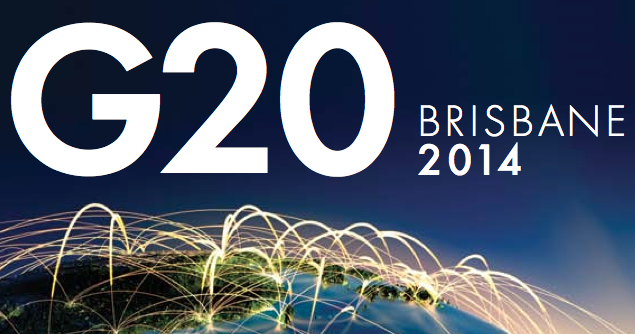G20: Coming Full Circle

At the Saint Petersburg 2013 Summit, G20 countries made a number of concrete commitments and turning them into results will be beneficial for the global economy, says Russia’s Ludmila Khudyakova.
In the current world economy, the main goals of G20’s Saint Petersburg presidency—boosting economic growth, creating new jobs and financial consolidation—remain priorities for the Brisbane agenda.
Passing on the conch
One of the topics proposed during Russia’s hosting was the promotion of long-term investment, especially in infrastructure, as an important source of economic growth. This included how to empower the private sector to play a role in infrastructure financing, stimulating and channeling savings for productive investment, encouraging investors to finance the real economy, and improving the capacity of banks to provide long-term financing. Another significant problem for financial markets is the movement of capital between developed and developing countries. Russia hopes that all these questions will be examined further at the Brisbane Summit.
Converting words into action
At the Saint Petersburg Summit in 2013, G20 countries made a number of concrete commitments. Among the most important for Russia were fighting tax evasion through automatic exchange of tax information, adoption of mid-term fiscal strategies and reform of global financial regulation. If Brisbane can contribute to turning these commitments into results, as well as finalising the 14th General Review of Quotas of the IMF and its ongoing reform, we are confident it will have beneficial outcomes for the global economy.
A new polycentric order
The globalisation of the world economy demands an adequate global governance response. As stated in a 2012 fundamental study Russia in a Polycentric World produced by my institute: “the formation of a new polycentric world order is, on the one hand, an objective process; on the other hand, it is or should be a result of the efforts of different nations, aimed at satisfying the world community’s need for stability and security in the international arena”.
That is why, in our opinion, despite all the criticism of its effectiveness and legitimacy, the G20 will remain the leading global forum for economic policy coordination between the main powers, including the rapidly-growing developing countries. And the Summit will continue to play the role of top coordinator for international organisations and standard-setting bodies on global economic issues.
An enlarged agenda?
We should bear in mind that the G20 is both an event and a process: a platform used to discuss and elaborate coordinated approaches in working groups. Just after the Global Financial Crisis of 2008-2009, the G20 played a decisive role in promoting global financial reforms. Now the agenda of the G20 has been reframed to move from an “anti-crisis” model to focus on medium-term economic strategy far beyond the financial track, though this remains very important.
Such an enlarged agenda presents new challenges for the ability of the G20 to cooperate effectively and move along the path of coordination.
Ludmila Khudyakova is Head of Department of Global Economic Problems and Foreign Economic Policy, Institute of World Economy and International Relations.
This is an extract from G20: Words into Action Brisbane 2014 published by Faircount Media in association with the Australian Institute of International Affairs in October 2014.





